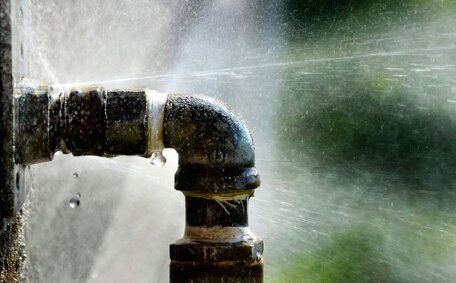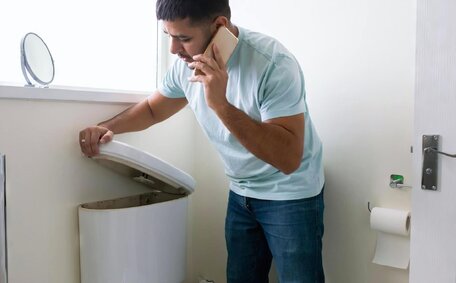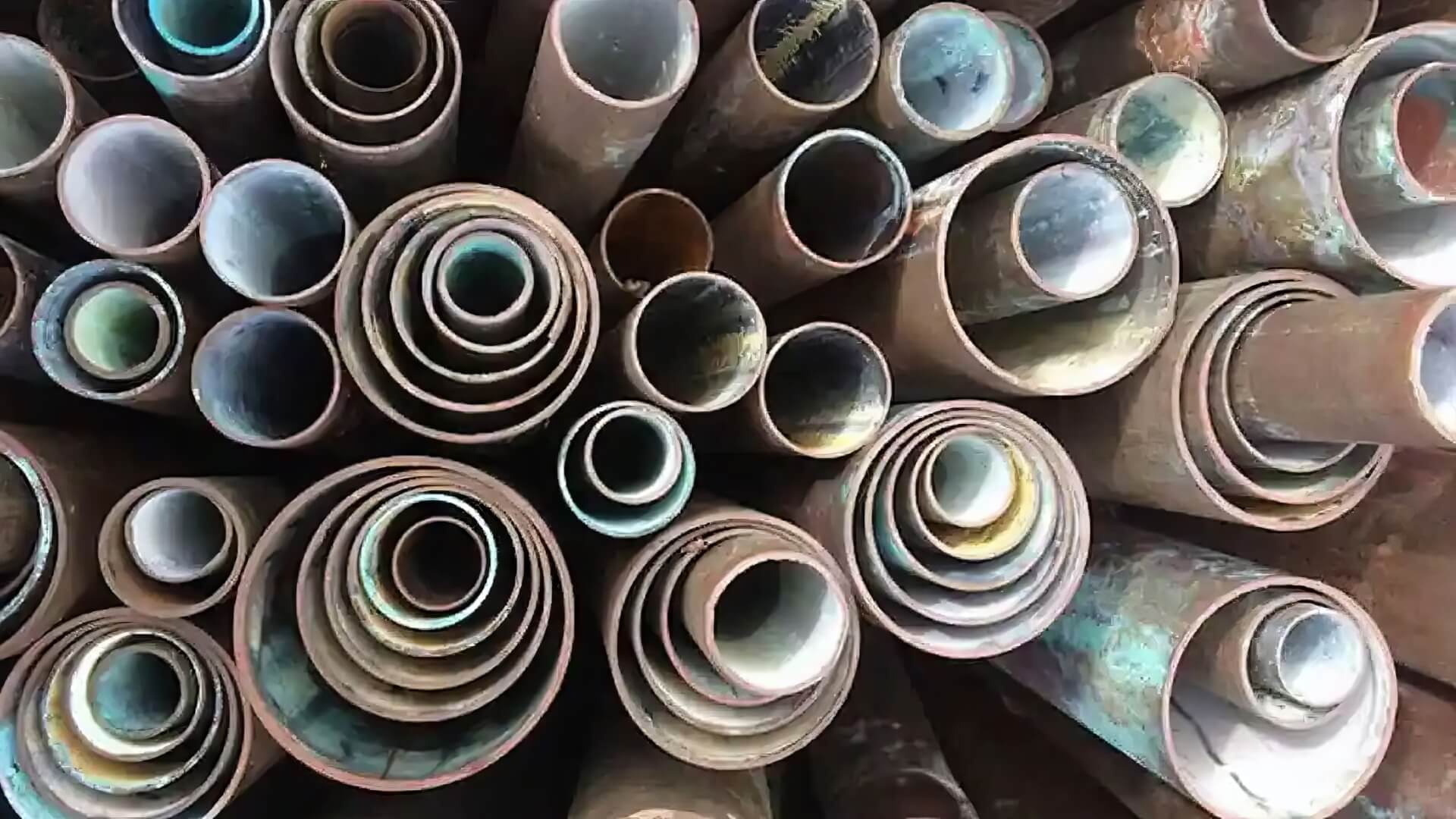
10 Signs Your Hot Water Heater Will Fail
If your water heater is old, leaking, rusty, noisy, not heating water properly or has low pressure, it could fail soon. Get your hot water system inspected today.
Read MoreQuickly recognising the signs of a gas leak is essential for your safety. Some key signs of a gas leak to be alert for include:
If you do suspect issues when using gas at home, leave the area immediately and call the fire brigade and your LPG gas company from a safe location.
Use UL-approved gas detectors at home; they alert you to gas leaks even without visible or olfactory signs. Do not return to the property until emergency services have inspected and given the all-clear. Staying acutely aware of these gas leak symptoms in your home and rapidly addressing leaks can prevent the CO poisoning that could ensue, as well as quashing explosion risks and other health impacts.
Indoor gas heaters with undetected leaks pose serious threats not just to indoor air quality but also present significant health dangers. Carbon monoxide poisoning is the primary health risk from a natural gas leak, occurring when the toxic gas is inhaled.
A challenge posed by natural gas use includes high concentrations of carbon monoxide from faulty appliances like gas stoves, which compromise oxygen delivery and can lead to an array of symptoms.
Reduced levels of carbon monoxide over time still present severe health risks, such as neurological and cardiovascular damage. Children, pregnant women, the elderly, and those with chronic health issues are particularly at risk for health problems when exposed to faulty appliances that use natural gas.
Natural gas can also exacerbate climate change and increase explosion risks from the build-up of hazardous combustion products, causing severe burns, trauma, and property damage. Fires from gas explosions consume oxygen rapidly and release contaminants harmful to eyes and respiratory systems, highlighting gas usage risks.
We recommend preventive steps such as installing UL-approved gas detectors, conducting annual inspections on appliances, and promptly vacating the premises if you suspect a leak to keep natural gas usage safe and mitigate health hazards.
Carbon monoxide (CO) is a toxic, odourless, colourless gas from incomplete combustion in gas-powered heating systems. It’s crucial to be aware of how to act if faulty gas appliances, including heaters, water heaters, and fireplaces, do not combust natural gas completely, as this is a common cause of carbon monoxide in homes. in these cases, it’s crucial to go outside to fresh air.
CO contamination affects our bodies by interfering with oxygen transportation in the blood. CO binds to haemoglobin in our red blood cells more readily than oxygen, which diminishes oxygen transportation within the body. High concentrations of CO can starve your body’s tissues of oxygen. Prolonged exposure, especially from unflued gas sources, can cause symptoms similar to those of a gas leak and may result in lasting health consequences.
Detecting symptoms of gas poisoning early is vital, as they may resemble the flu, including headache, dizziness, weakness, upset stomach, vomiting, and chest pain. But it can quickly progress to confusion, blurred vision, loss of consciousness and even death.
That’s why installing UL-approved carbon monoxide detectors on every level of the home is critical. These detectors provide early warnings of dangerous CO levels, allowing time for safe ventilation and evacuation before symptoms become life-threatening.
If an alert sounds or you smell gas, evacuate immediately, ensure your household’s safety, and seek medical advice based on any symptoms. Do not re-enter until gas appliances have been inspected and confirmed safe by a licensed plumber, as even fixed leaks can leave behind residual carbon monoxide.
Additional to carbon monoxide poisoning, unforeseen leaks during domestic culinary activities can undermine one’s knowledge about natural gas safety, jeopardising indoor air quality and eliciting perilous health impacts. Exposure to even small amounts of gas emissions from appliances such as stoves can cause symptoms like:
Natural gas can displace oxygen, leading to symptoms of unwellness, even in spaces beyond the immediate leak area. This can cause fainting, trouble breathing, accelerated heartbeat, and even unconsciousness and death if prolonged.
That’s why it’s critical to seriously consider any physical discomfort if you suspect gas presence and ensure you access fresh air immediately. Left unchecked, leaks pose threats not just from explosions but also the cumulative health effects of gas exposure over time.
Call gas companies for emergency services so gas levels can be measured safely before re-entering the area.
When a gas leak is detected, the most critical action is to leave the area immediately. Do not turn any lights or appliances on or off, as a single spark could ignite leaking gas and cause an explosion. When gas is suspected, alert anyone else inside, and especially those near gas appliances, to evacuate immediately.
From a safe distance, promptly call 000 to inform local fire services or emergency personnel. Explain that you have detected a gas leak. Prevent anyone from going near the property if a natural gas source is turned off for safety, and wait until the area is declared safe by emergency crews.
The emergency crew may be able to turn off the gas if they do suspect gas leak in your home, doing so remotely. Provide clear directions on how to locate your property’s shutoff valve, usually near your gas metre, if they require it. Only attempt this step if safe to do so and at the instruction of emergency services.
Healthcare should be sought for individuals showing signs symptoms like headaches, dizziness, or respiratory distress, which could indicate carbon monoxide CO poisoning. Be evaluated for carbon monoxide (CO) poisoning, even if symptoms improve once outside. The emergency services team may provide oxygen therapy if low oxygen levels are detected due to exposure gas leak.
Suspecting a gas leak, avoid turning any lights or appliances on or off to prevent sparks that could ignite the gas and cause an explosion. Do not turn on or off any lights, appliances or devices that could produce a spark and ignite leaking gas, causing an explosion.
Safely alert any other people or pets inside to evacuate immediately as well. Do not use phones, garage door openers or anything electronic while inside the home that could potentially cause a spark. Simply get out of the house as quickly and carefully as possible.
Go to an outdoor area safely upwind and away from the property, avoiding contact with any leaking fluids like liquid propane/butane. Call emergency services from there to report the leak and do not allow anyone to re-enter until gas technicians have measured gas levels and declared the property safe.
Trying to locate the source of the leak or stopping it yourself risks sparking an ignition and poses a severe health hazard. Safety is paramount; evacuate without delay to prevent any activities that could cause spark and leave inspection and repair to licensed professionals upon receiving the all-clear.
If you suspect a gas leak, call your local gas company immediately after evacuating to a safe location. Check your latest gas bill for the emergency contact number. Give them your details, location and any information about the suspected leak or symptoms noticed.
A gas company technician will be promptly dispatched to inspect for leaks and measure gas levels. Follow any directions for accessing your property’s gas metre. Do not re-enter until the area has been declared safe by emergency services and gas technicians.
A prompt call facilitates intervention from your gas provider to safely turn off natural gas lines if necessary, and initiate the essential repairs before hazardous circumstances emerge. Never attempt fix repairs yourself - leave it to qualified experts. Work cooperatively with emergency responders and the gas company until the issue is fully resolved.
If you suspect a gas leak, avoid using gas appliances until professionals have safely resolved the issue. Attempting DIY repairs on gas appliances or lines may cause sparks, a gas leak can ignite and potentially cause an explosion.
Instead, evacuate immediately and call emergency services as a safety precaution. Shutting off the gas supply should only be done at the instruction of the fire brigade once outside, if it’s safe to access the shutoff valve.
Allow our expert plumbers to accurately pinpoint the source of the leak, effectively halt its progression, and meticulously execute repairs. Never return to a home where a leak suspected without assurance that gas levels have been deemed safe. Rely on licenced experts to resolve the issue.
There are several key strategies homeowners can do gas leak prevention:
Service all gas appliances annually with a qualified technician; one of many gas safety tips to check for issues that may lead to leaks if left unaddressed. They can ensure safety devices are working properly. Check flexible gas lines for wear and tear.
If even a minute gas issue arises, here’s some advice: call a professional without delay and refrain from using any affected appliances until repairs are completed by a licenced gas fitter or plumber. Small leaks tend to worsen over time if ignored, highlighting the need for a licensed gasfitter’s attention.
Install UL-approved carbon monoxide detectors to be swiftly alerted to harmful gas leakages. Position near appliances and sleeping areas. Check batteries regularly.
Replace appliances over 15 years old, as they can only be so efficient before they become a hazard due to outdated safety features and technologies. An aged appliance is more likely to develop faults leading to leaks.
Our Mortdale Plumbing experts excel in gas leak detection and can assess your appliances, gas system, and fittings. We help identify issues before they become hazardous leaks and provide reliable installation and repairs to keep your home gas safe.
At Mortdale Plumbing, we have licenced and expertly trained gas fitters and plumbers available 24/7 to respond urgently to gas leaks, ensuring a PSE healthy environment for your home and family.
If you detect signs of exposure gas leakage or your gas detectors sound, call our emergency hotline immediately on 1300 349 338. We’ll immediately send technicians to:
Our team handles gas leaks of any size and origin, following public health guidelines. We’ll work to stop leaks swiftly, ventilate the area fully, and get your gas supply restored once it’s certified safe again.
We also specialise in routine maintenance and upgrades to promote gas safety:
A preventative approach, informed by public health knowledge, involves early detection of issues for lasting solutions. If your gas system and appliances haven’t had a safety check in the past year, contact us to book an inspection. We want to help keep your home gas leak-free.
If your water heater is old, leaking, rusty, noisy, not heating water properly or has low pressure, it could fail soon. Get your hot water system inspected today.
Read MoreIf you have plumbing fixtures that are over 10 years old or showing signs of wear like leaks and cracks, it’s important to replace them to prevent more costly water damage in the future. Replacing worn fixtures improves water efficiency.
Read MorePipe relining is a trenchless method that renews pipes from the inside out. It involves draining, drying and scrubbing the pipe interiors before applying materials like silicone, PMMA or epoxy resins to create a resilient, soft, temporary liner inside the existing pipes.
Read MoreMortdale, 2223 NSW
We will call back as soon as possible.




